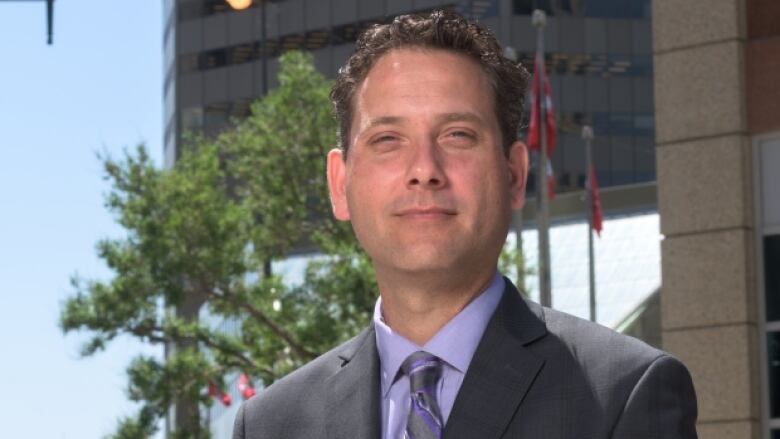Health-care premiums are about taxation, not health care, policy expert says
'Its just an increase in taxes. Realistically, its nothing more than that,' says Dr. Alan Katz

Premier Brian Pallister's proposed health-care premiums are about money, not medicine, says the director of the Manitoba Centre for Health Policy at the University of Manitoba.
"This is all about taxation and not so much about health care, so I think that we are seeing an outcry from both sides based on their own philosophies around tax increases," said Dr. Alan Katz.
Pallister announced Wednesday that his government might introduce health-care premiums to offset rising costs.
Manitobans will have to start paying health-care premiums, as residents in some other provinces do, or prepare to see services cut, Pallister said.
Health-care costs are rising and "we need to pay for it somehow," Katz said.
Some governments choose to run deficits to pay for health care, Katz said, but the Pallister government has said that's not an option.
That means the government must find new money to pay for health care, Katz said.
"It's just an increase in taxes. Realistically, it's nothing more than that."
Loren Remillard, president and CEO of the Winnipeg Chamber of Commerce, said the province needs to learn to live within its means.
"It's troubling, because it opens the floodgates for all sorts of new ways to tax Manitobans," he said about health-care premiums.
Remillard pointed out the Progressive Conservative government promised during the election campaign to put any major tax change to a referendum. However, Pallister has said a health-care premium isn't income or sales tax, so there will be no referendum although there are plans for consultation with the public, beginning with an online survey.

"When we take a look at health care premiums in other jurisdictions, if Manitoba matches those other jurisdictions, where average two-income family pays about $75 a month, that family would face the cost equivalent of a three per cent PST increase," he said.
"When you consider the litany of tax increases people have faced in recent years everything from CPP, EI, Manitoba Hydro rate increases the federal government is proposing some significant tax increases on small business. We've just really moved past tax fatigue into tax exhaustion."
The Canadian Centre for Policy Alternatives, a think-tank that focuses on social, economic and environmental justice, also criticized the health-care premiums, saying there are better ways of filling in funding gaps.
"The health-care premiums in other provinces haven't worked, so there's other means to the provincial government that are income tested, such as increasing personal income tax rates on upper income earners or corporations, that would bring in this revenue," said Molly McCracken, director of the Manitoba office of the think-tank.
But health-care premiums aren't universally criticized.
Ian O'Donnell, the head of Edmonton's Downtown Business Association who is in Winnipeg for the International Downtown Association conference, said he and his partner used to pay about $615 a year for the Alberta health-care premium, which was eliminated in 2009.
"We certainly should look back and regret that we do not have them anymore. It was a relatively small amount spread across the province and it offset an amount of our health-care expenditures," he said.
Now the province is struggling to recoup health-care spending, while the premium was "barely noticeable," he said.
with files from Erin Brohman and CBC's Information Radio













_(720p).jpg)


 OFFICIAL HD MUSIC VIDEO.jpg)
.jpg)



























































































